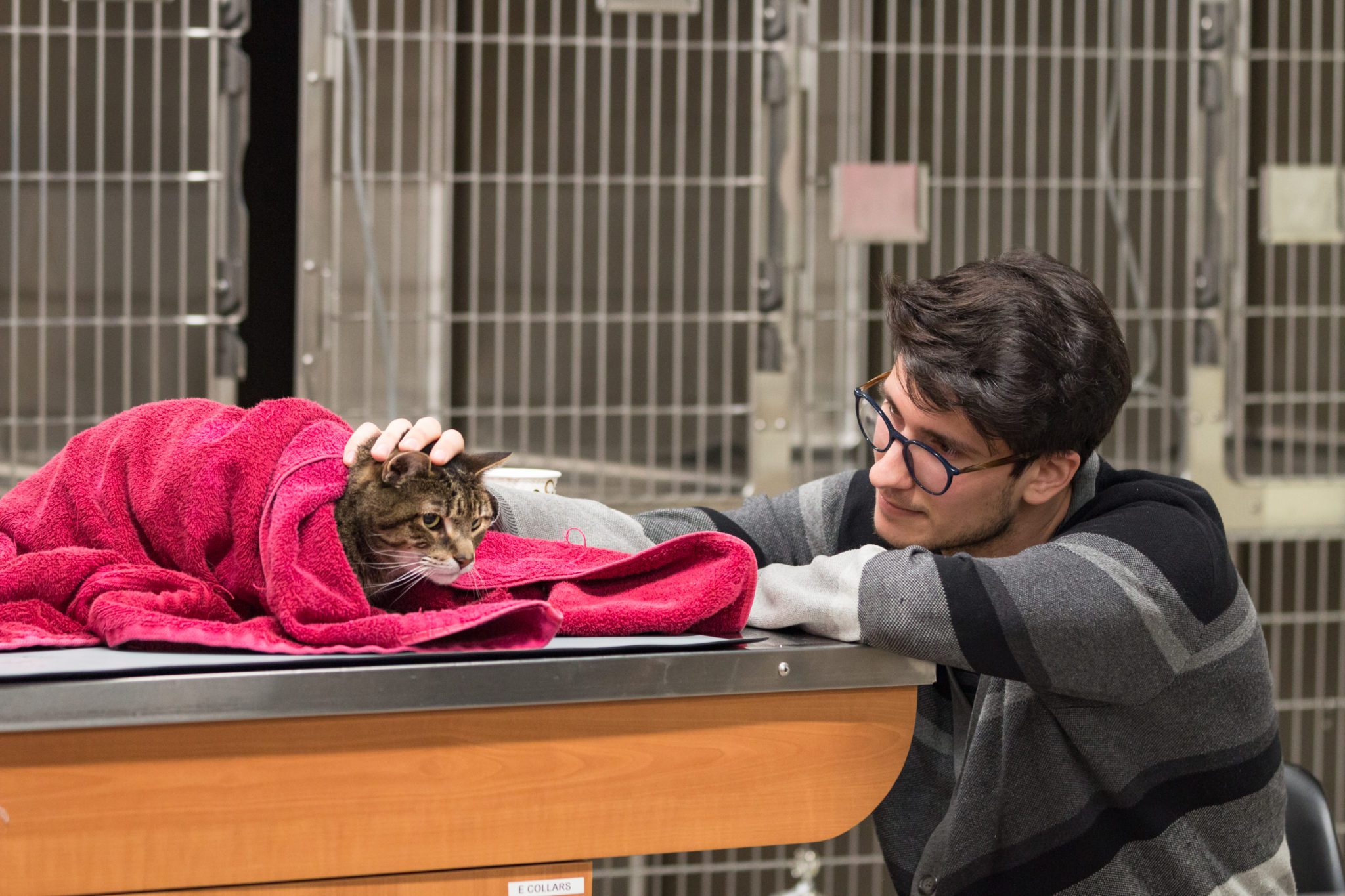
Cat Diarrhea and Vomiting: Everything You Never Wanted to Know
Dr. Mollie Powell
Call & Speak with a doctor Open 24/7, Even Holidays!
Walk in today for:
Emergencies
Point-of-Care Ultrasound
Urgent Care
X-Rays
Diagnostics + Testing
End-of-Life Care
Surgery
Treatment + Hospitalization
It’s official…the litter box is ruined! Your kitty is up to double trouble with diarrhea and vomiting. It’s cleanup time and it’s the best time to read on to learn more about what’s going on with your cat.
First things first, always reach out to a vet if you’re concerned about your cat’s health so that they can help identify and treat the exact cause right away. At Veterinary Emergency Group (VEG), you can call and speak with an ER veterinarian right away.
TUMMY TROUBLES: 5 REASONS FOR CAT DIARRHEA AND VOMITING
Vomiting and diarrhea can be uncomfortable and concerning for cats. While the symptoms often clear up on their own, some situations may require a visit to the emergency vet. So, let’s claw our way through the causes for these illnesses, and how to know if your feline friend needs immediate care.
1. HAIRBALLS
Yes, one of the most common reasons why cats vomit is hairballs. If a large clump of hair comes up with your kitty’s throw up, you’ll know the culprit. Sometimes, hairballs can also give your cat diarrhea, but that should clear up after one or two poops.
A word of caution: You want to be careful labeling your cat’s coughing as simply “bringing up a hairball.” Talk to your vet if you notice Fluffy is hacking or gagging a lot without spitting out a hairball.
2. FOOD SENSITIVITY
If your cat’s diet fluctuates, things can go from yum to yuck quickly. Food sensitivity may be a potential cause for diarrhea and vomiting. This can occur when you:
- Switch their diet
- Let them eat table scraps
- Feed them new treats
This can cause your kitty to experience some short-term vomiting and diarrhea due to sensitivity or possibly a food allergy.
3. PARASITES
Another possible reason behind your cat’s vomiting-diarrhea combo could be digestive parasites—get out! Yes, these parasites, aka “worms,” can cause other symptoms like:
- Appetite changes
- Behavioral issues
- Distended belly
- Weight loss, and more
It’s important to stay on top of this by visiting your veterinarian, because only a vet can diagnose and treat this condition in cats.
4. POISON
Throwing up and diarrhea occurs when a cat ingests something that’s toxic, such as poisonous plants.
Vomiting and diarrhea will be some of the first symptoms of poisoning. Your cat’s condition will likely deteriorate quickly, so getting to a VEG hospital or your nearest emergency vet promptly is crucial.
5. INTESTINAL OBSTRUCTION
A very serious matter, an obstruction in the intestines can happen if your cat accidentally swallows parts of a toy or other small object. This can lead to a blockage in the intestines, which can damage the digestive system and quickly become fatal.
CALL VEG AND SPEAK WITH AN EMERGENCY VET
If you’re concerned about your cat’s diarrhea and vomiting symptoms, you can always call VEG, where an emergency veterinarian will answer your questions. Contact VEG if any of the following happen:
IF THERE’S BLOOD IN THE VOMIT AND/OR STOOL
This can indicate a wide range of diseases, illnesses, and health conditions. An ER-trained veterinarian at VEG will work with you to diagnose the cause and treatment.
IF YOUR CAT CAN’T KEEP WATER DOWN
Cats who are sick and experiencing diarrhea or vomiting won’t want to drink water, but you should absolutely encourage kitty to take a few sips.
A visit to the emergency vet will help in avoiding dehydration, which can quickly become fatal for cats.
IF YOUR CAT IS UNRESPONSIVE
Go to the emergency vet right away. This is a clear sign that your cat is experiencing a major health crisis.
IF SYMPTOMS LAST OVER 12 HOURS
Diarrhea and vomiting that last this long can quickly lead to severe, even fatal, levels of dehydration. Visit the emergency vet immediately.
IF YOUR CAT HAS NOT EATEN IN OVER 24 HOURS
Cats with tummy troubles usually don’t want to eat. Going without eating for a prolonged period of time can lead to serious health issues (i.e., liver disease) in your cat.
IF YOUR CAT INGESTED SOMETHING TOXIC
If you know or suspect that your cat has swallowed a toxin or foreign object, get to your nearest VEG ASAP.
VEG IS HERE FOR YOU
Figuring out just how serious your feline’s fussy tummy problem is can help you make the right decisions.
Our nation-wide VEG locations have emergency vets available 24/7 to make sure your cat receives the purrfect care, pronto! Best of all, at VEG, you can stay with your cat all throughout treatment.

